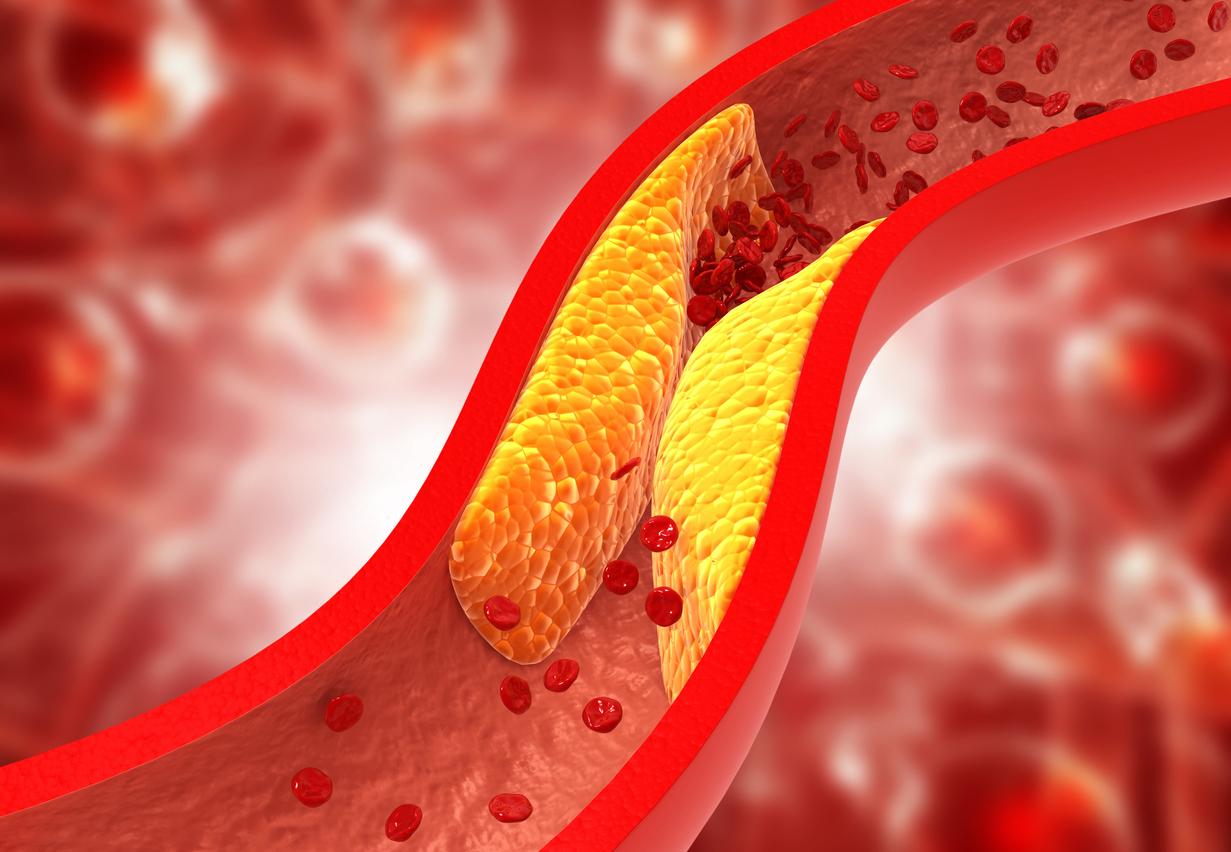August 26, 2004- A low-fat diet combined with a diligent exercise program may have slowed the progression of atherosclerosis attributable to menopause, according to a study1 American clinic.
Can a woman at the age of menopause reduce the clogging of her arteries just by changing her lifestyle? This is the question that American researchers answer in the affirmative in a study published in the Journal of the American College of Cardiology.
Through a cohort study, known as the Women’s Healthy Lifestyle Project, researchers followed the condition of atherosclerosis in the subclinical phase for four years (the clinical symptoms of which are not yet apparent or measurable. ) in 353 women aged 44 to 50. The participants were randomly divided into two groups.
In one group, the women adopted a diet reduced in calories and saturated fat while following a sustained exercise program. The other participants formed the control group.
By measuring the thickness of theintima-media (EIM) of the carotid artery at regular intervals, the researchers noticed that atherosclerosis no longer made progress in the participants who exercised and ate less fat. THE’intima-media (EIM) forms the two linings of the arterial wall and the measurement of its thickness is closely related to the onset of cardiovascular disease. The ADR increases with age and lifestyle. The physiological changes caused by menopause make women more vulnerable to the development of cardiovascular disorders, including atherosclerosis.
As the researchers point out, there are still very few studies on the impact of lifestyle habits on ADR, most clinical trials focusing on the effect of drugs.
Marie france Coutu – PasseportSanté.net
1. Wildman RP, Schott L, Brockwell S, Kuller LH, Sutton-Tyrell K, A Dietary and Exercise Intervention Slows Menopause-Associated Progression of Subclinical Atherosclerosis as Measured by Intima-Media Thickness of the Carotid Arteries, Journal of the American College of Cardiology, August 4, 2004, Vol. 44, No. 3, 579-85.

















